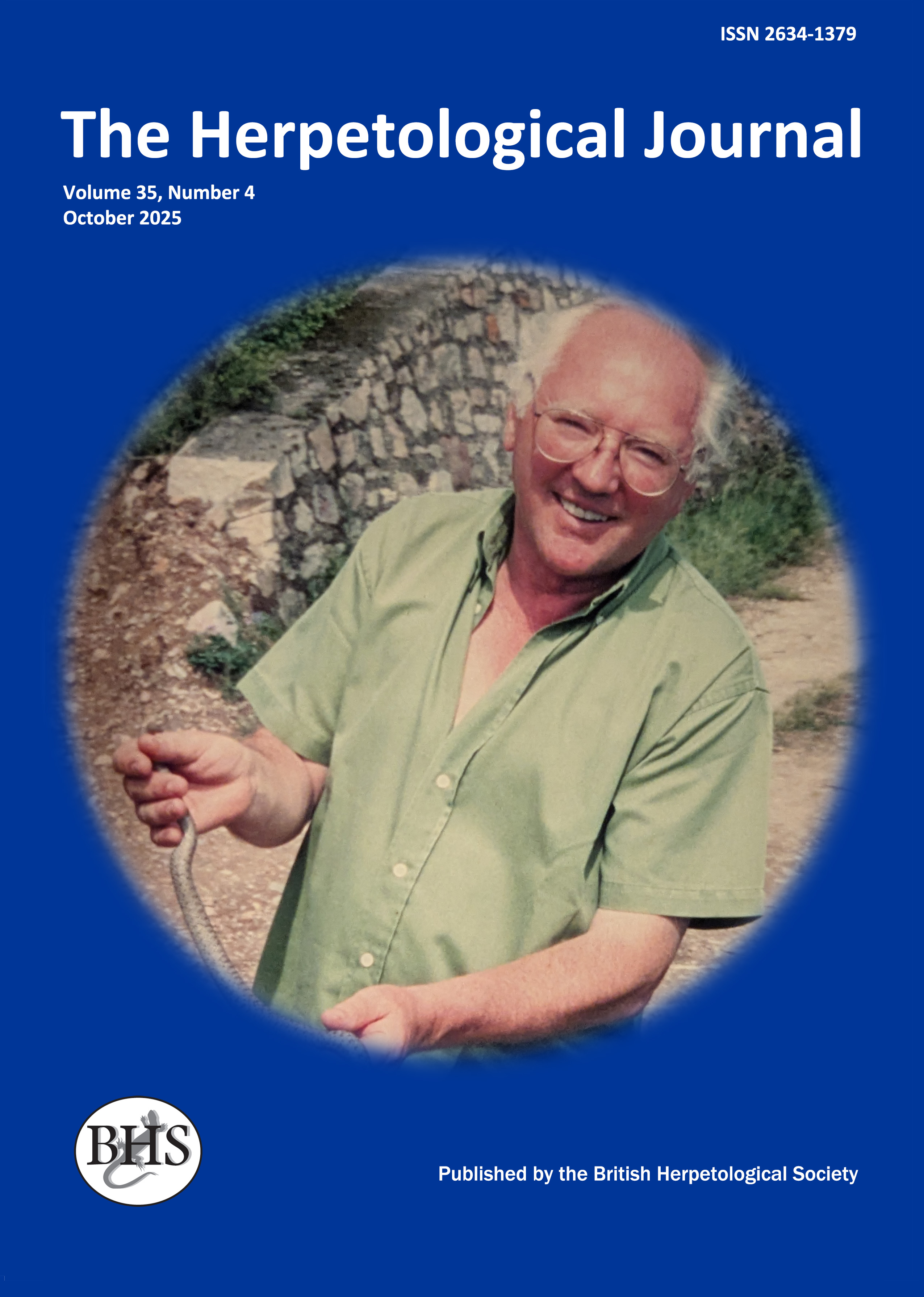
The Herpetological Journal
The Herpetological Journal is the Society's prestigious quarterly scientific journal. Articles are listed in Biological Abstracts, Current Awareness in Biological Sciences,Current Contents, Science Citation Index, and Zoological Record.
ISSN 0268-0130
2023 Impact Factor for the Herpetological Journal is 1.1, with the Journal sitting just below Quartile 2 in Zoology, at percentile 46.9
pdf 03. Dominance and aggression in captive gidgee skinks (Egernia stokesii)
1145 downloads
Open Access
https://doi.org/10.33256/hj30.2.8392
pp. 83-92
Authors: Holly Baines, Beatrice Gini, Yu-Mei Chang & Christopher J. Michaels
Abstract: Dominance is a key component of behaviour in many animal species and is central to social system dynamics, resource acquisition, individual fitness and ultimately reproductive success. We investigated dominance interactions and social behaviours in a group of captive juvenile gidgee skinks (Egernia stokesii). We hypothesised that a dominance hierarchy existed within the group, and that aggressive behaviours would be used to secure limited resources, especially high-value
resources. We also hypothesised that body weight would be positively correlated with dominance and aggressive behaviours. We filmed the lizards at 1200 hours for six days a week over the course of eight weeks. We exposed the lizards to three different diets, which consisted of an animal-based diet (crickets), plant-based diet (plants), and a non-feeding control (no food offered). The relative value of these resources to the skinks was established through preference tests. We identified a dominance hierarchy, with dominant individuals exhibiting more aggressive behaviours than subordinates. We found that the frequency of aggressive behaviours was significantly higher in trials where high-valued resources (crickets) were at stake. Furthermore, we found a significant positive correlation between body weight and dominance, bite and chase;
larger individuals were ranked higher in the social hierarchy compared to smaller individuals. Our results demonstrate the importance of morphological and behavioural traits in determining a dominance hierarchy in E. stokesii and how dominance can have ecological advantages.
Keywords: dominance, aggression, body weight, behaviour, interaction, lizards

